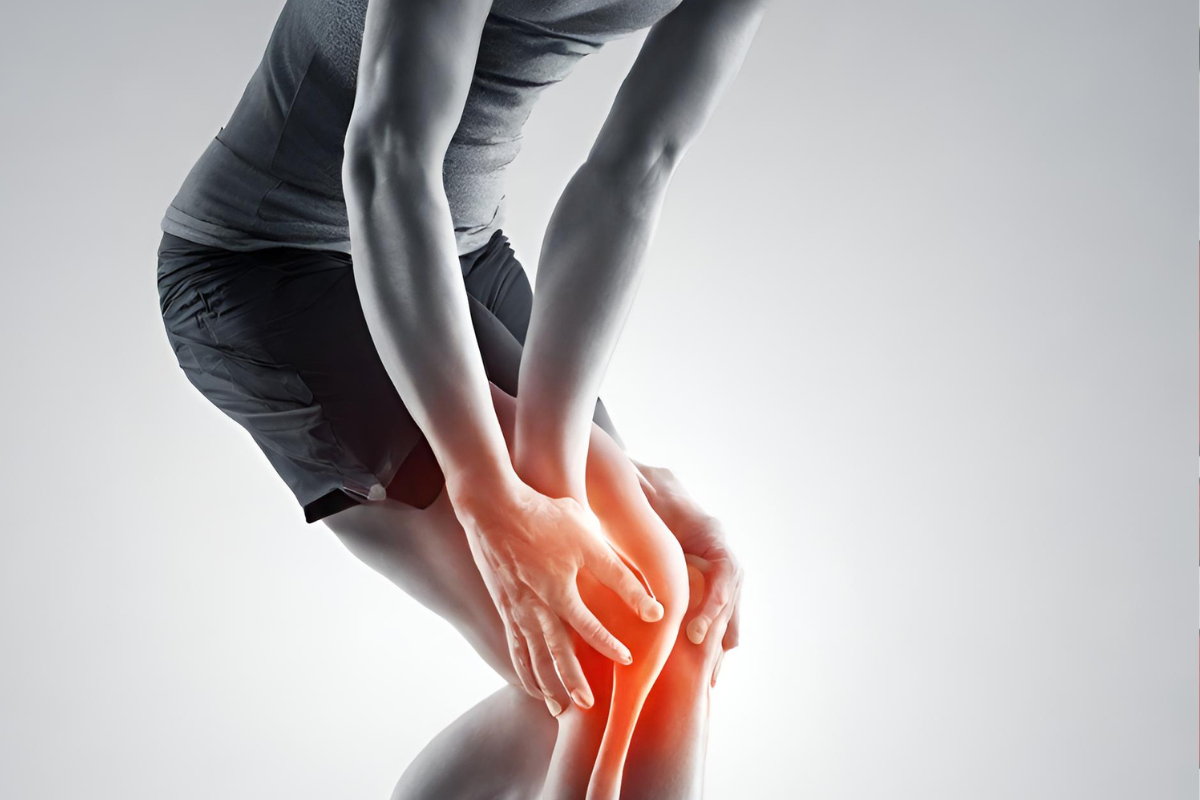Joint swelling stiffness and pain can be caused by everything from arthritis through to simple injury. There are generally quite a few things that can be done when it comes to natural remedies, especially for less aggressive issues. The question is of course whether or not DHEA is good for joints and just how effective it actually is. The short answer is that it does seem to be effective, particularly in the case of women’s joint conditions that come as a result of hormonal changes through menopause.
A lot of research has shown that DHEA supplementation can decrease bone resorption and increase bone formation in women. [1] Particularly those with low pretreatment DHEA levels. This effect is believed to be partially due to the conversion of DHEA into active sex hormones, such as estradiol and testosterone. [2] These hormones play a crucial role in bone metabolism and contribute to the maintenance of bone density. However, it is important to note that the effects of DHEA on bone health are not observed in men, as their testes continue to produce testosterone throughout life.
The Role of DHEA in the Body
Dehydroepiandrosterone (DHEA) is a hormone produced by the adrenal glands that plays a vital role in the human body. [3] It is responsible for the production of other hormones like estrogen and testosterone. As we age, our body's production of DHEA declines, leading to various health concerns. Now, this may not immediately sound like it’s all to relevant to joint health. But one of the main things that DHEA does, is effect bone density.
Studies have shown that DHEA can increase bone density, which is particularly important for postmenopausal women. That’s because they are at a higher risk of osteoporosis. [4]
Additionally, DHEA has some relatively potent anti-inflammatory properties. And of course reducing inflammation in the body can reduce the pain caused by joint issues.
The Science Behind DHEA's Anti-Inflammatory Properties
DHEA has been found to lower the production of inflammatory cytokines, which are the the molecules responsible for causing inflammation. On top of this DHEA increases antioxidant levels reducing oxidative stress and in turn inflammation. [5]
In addition this studies have shown that DHEA inhibits the activation of what's know as the nuclear factor kappa B (NF-κB). This is a protein complex involved in regulating the bodies immune and inflammation respsonses. By inhibiting NF-κB activation DHEA can reduce the production molecules the cause inflammation like interleukin-6 (IL-6).
DHEA and Osteoporosis
Osteoporosis is a common bone disease (more common in women) characterized by low bone mass leading to an increased risk of fractures. While DHEA replacement therapy has shown positive effects on bone health and there's some decent evidence to support it's use. DHEA is NOT currently recommended as a treatment for osteoporosis. This simply due to there not being enough good studies evaluating how effective DHEA is in reducing fracture rates and potential long-term side effects. Further research is needed to determine the optimal dosage, duration, and long-term effects of DHEA supplementation in the treatment of osteoporosis. [6]
For example a recent study published in the Journal of Clinical Endocrinology and Metabolism revealed that DHEA supplementation may have a positive effect on bone health. The study showed that DHEA supplementation increased bone mineral density in postmenopausal women, potentially reducing the risk of osteoporosis and fractures.
DHEA and Osteoarthritis
Osteoarthritis is the most common form of joint disease with it being characterized as the breakdown of cartilage in the joints. The primary symptom of osteoarthritis is chronic joint pain. While the effects of DHEA on osteoarthritic cartilage have been well-documented, its potential to modulate osteoarthritis related pain is still being explored. But, in short it does seem to have some benefits. [7]
Several clinical studies have investigated the effects of DHEA supplementation on joint inflammation. One study found that DHEA supplementation reduced joint pain and swelling in patients with knee osteoarthritis. Another study demonstrated that DHEA supplementation improved joint function and reduced inflammation in patients with rheumatoid arthritis. But, more studies are required before DHEA can be recommended as a treatment. [8]
Link Between DHEA and Pain Generation
On top of the benefits to bones and cartialage, there's some evidence to suggest that DHEA may have a direct impact on pain generation. DHEA is synthesized in the adrenal glands and has been shown to interfere with nerve growth factor (NGF) receptors. And these play a crucial role in peripheral hypersensitivity.
Although most of the studies are in animals so far, the studies do look likely to pan over to humans in this case. The endogenous DHEA produced in the spinal cord has been found to regulate nociception in neuropathic rats. These findings indicate that DHEA may have a role in modulating pain perception in osteoarthritis. [9]
Side Effects of Taking DHEA for Bone and Joint Health
Some individuals may experience side effects when taking DHEA supplementation. These can include acne, oily skin, hair loss, and changes in mood or behavior. It's essential to closely monitor your symptoms while taking DHEA and inform your healthcare provider if you experience any adverse effects.
References
1 - https://pubmed.ncbi.nlm.nih.gov/11106916/
2 - https://www.ncbi.nlm.nih.gov/pmc/articles/PMC2435090/
3 - https://pubmed.ncbi.nlm.nih.gov/36121077/
4 - https://www.ncbi.nlm.nih.gov/books/NBK441901/
5 - https://www.ncbi.nlm.nih.gov/pmc/articles/PMC10049419/
6 - https://pubmed.ncbi.nlm.nih.gov/32504237/
7 - https://pubmed.ncbi.nlm.nih.gov/31229511/
8 - https://pubmed.ncbi.nlm.nih.gov/30029735/
9 - https://www.ncbi.nlm.nih.gov/pmc/articles/PMC8469064/




